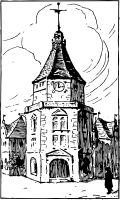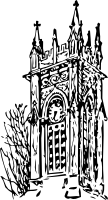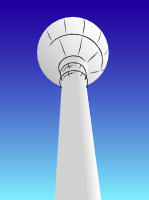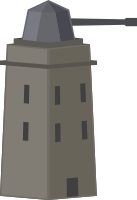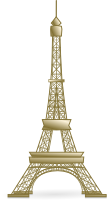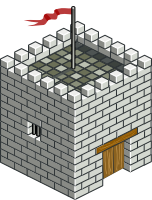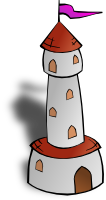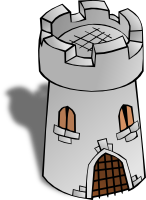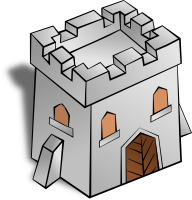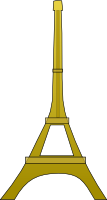Associations to the word «Towers»
Noun
- Skyscraper
- Ivory
- Crag
- Plaza
- Roof
- Summit
- Meter
- Height
- Wall
- Ruin
- Spire
- Alton
- Buttress
- Chancel
- Precipice
- Nave
- Transept
- Storey
- Steeple
- Cupola
- Condominium
- Parapet
- Torre
- Pinnacle
- Sky
- Foliage
- Towers
- Skyline
- Peak
- Moat
- Turret
- Lookout
- Aisle
- Bell
- Pillar
- Facade
- Tornado
- Transmitter
- Cliff
- Bastion
- Spear
- Tower
- Lighthouse
- Gable
- Clock
- Pisum
- Rampart
- Masonry
- Porch
- Sweep
- Staircase
- Lancet
- Cornice
- Cloud
- Archway
- Ceiling
- Chime
- Grove
- Mist
Adjective
Pictures for the word «Towers»
Wiktionary
TOWER, noun. A very tall iron-framed structure, usually painted red and white, on which microwave, satellite, or other communication antennas are installed; radio tower.
TOWER, noun. A similarly framed structure with a platform or enclosed area on top, used as a lookout for spotting fires, plane crashes, etc.
TOWER, noun. A water tower.
TOWER, noun. A control tower.
TOWER, noun. Any very tall building or structure; skyscraper.
TOWER, noun. (figuratively) Any item, such as a computer case, that is usually higher than it is wide.
TOWER, noun. (informal) An interlocking tower.
TOWER, noun. (figurative) A strong refuge; a defence.
TOWER, noun. (historical) A tall fashionable headdress.
TOWER, noun. (obsolete) High flight; elevation.
TOWER, noun. The sixteenth trump or Major Arcana card in many Tarot decks, deemed an ill omen.
TOWER, verb. (intransitive) To be very tall.
TOWER, verb. (intransitive) To be high or lofty; to soar.
TOWER, verb. (obsolete) (transitive) To soar into.
TOWER, noun. One who tows.
TOWER, adjective. Of or concerning the system of weights used by the Saxon and Norman English kings in their minting of coins.
TOWER BASTION, noun. (fortifications) A bastion of masonry, often with chambers beneath it, built at an angle of the interior polygon of some works.
TOWER BLOCK, noun. A tall residential or office building.
TOWER BLOCKS, noun. Plural of tower block
TOWER BRIDGE, proper noun. A bascule bridge in London crossing the River Thames, built in the late 19th century
TOWER CRANE, noun. A crane, consisting of a balanced beam erected on top of a tall metal (normally self-erecting) tower, used in the construction of tall buildings
TOWER DEFENSE, noun. (video games) A style of real-time strategy video game in which the player attempts to stop enemies from crossing a map by building traps to slow them down and towers or turrets which shoot at them as they pass within range.
TOWER MUSTARD, noun. Arabis glabra, a tall, slim, grey-green plant with small creamy flowers at the top of the stem.
TOWER OF BABEL, proper noun. (biblical) A tower erected at Babel by the descendants of Noah's son Ham to reach the sky, and whose completion God thwarted by making the workers speak different languages so that they were unable to understand one another.
TOWER OF BABEL, noun. (figuratively) A visionary and impractical plan.
TOWER OF BABEL, noun. Alternative spelling of tower of Babel
TOWER OF BABEL, noun. (figuratively) A situation where the use of many different languages is a source of confusion.
TOWER OF LONDON, proper noun. A riverside fortress in London, used as a palace, prison and now a museum housing the Crown Jewels.
TOWER OF PISA, proper noun. Alternative form of Leaning Tower of Pisa
TOWER OF SILENCE, noun. Open-topped tower where Parsees place their dead.
TOWER OF STRENGTH, noun. Person who supplies strong and reliable support, especially in difficult times.
TOWER OVER, verb. (transitive) to be much taller or higher than something; to loom over
Dictionary definition
TOWER, noun. A structure taller than its diameter; can stand alone or be attached to a larger building.
TOWER, noun. Anything that approximates the shape of a column or tower; "the test tube held a column of white powder"; "a tower of dust rose above the horizon"; "a thin pillar of smoke betrayed their campsite".
TOWER, noun. A powerful small boat designed to pull or push larger ships.
TOWER, verb. Appear very large or occupy a commanding position; "The huge sculpture predominates over the fountain"; "Large shadows loomed on the canyon wall".
Wise words
Language is a process of free creation; its laws and
principles are fixed, but the manner in which the principles
of generation are used is free and infinitely varied. Even
the interpretation and use of words involves a process of
free creation.



